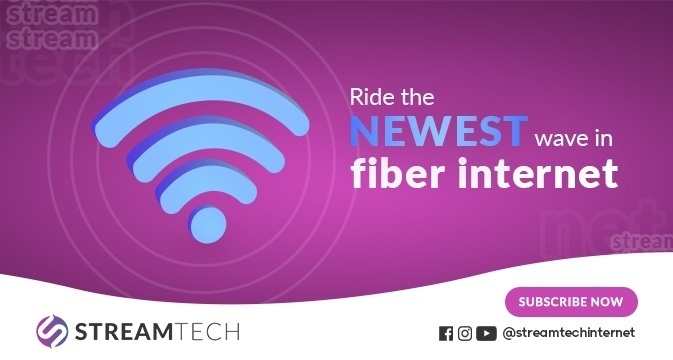The future is now for Mark Zuckerberg, CEO of social media company Facebook. Zuckerberg recently announced that the name of Facebook’s parent company has changed to Meta. It’s clear that the tech giant intends to pursue metaverse opportunities aggressively. The company said it would better “encompass” what it does. This is as it broadens its reach beyond social media into areas like virtual reality (VR).
The change does not apply to its individual platforms, such as Facebook, Instagram, and Whatsapp. It’s only the parent company that owns them. This means you can still access and experience these social media apps as long as you’re connected. This can be either to mobile internet or broadband connections like cable or fiber internet.
We’re seeing a lot of discussions lately about “the metaverse,” which is supposedly the next big thing in virtual worlds that will change everything. However, everyone appears to have their own definition of what “the metaverse” implies—if they know what it means at all.

You can also check out these related articles:
- All you need to know about Internet of Things (IoT)
- Here are Some Mind-blowing Facts about the Internet
Metaverse meaning
Metaverse is a portmanteau, combining the prefix ‘meta’ and the word ‘universe’, and is generally used to describe a virtual universe, accessed by virtual reality (VR) technology.
The word was coined in 1992 by science fiction novelist Neal Stephenson in his work Snow Crash. In the novel, characters enter the metaverse via their avatars, which are virtual representations of themselves. In the metaverse, avatars can transcend reality and enter a VR world, however, in Stephenson’s novel, the metaverse was an escape from a world that was bleak, dystopian, and fueled by corporate greed.
Stephenson’s Metaverse appears to its users as an urban environment, developed along a single hundred-meter-wide road, the Street, that runs the entire 65536 km (216 km) circumference of a featureless, black, perfectly spherical planet. The virtual real estate is owned by the Global Multimedia Protocol Group, a fictional part of the real Association for Computing Machinery, and is available to be bought and buildings developed thereupon. Access to the metaverse is through L. Bob Rife’s cable television network, which has expanded to become a global information monopoly replacing the phone system.
Since then, the word has increased in popularity, especially in the gaming space. Anyone who’s enjoyed a role-playing game (RPG) where they entered the world of the game and played live with other players and characters is probably familiar with the concept of a metaverse. The term has also been used by futurists for years to describe how we might connect digitally in years to come.
Some facts about the “metaverse”

The term metaverse isn’t just virtual reality. It is more than that. It may have just come to the attention of many, but it’s not a new word, nor was the term invented by Zuckerberg. To understand this term better, here are some facts about the metaverse:
1. It is a virtual space.
Meta describes metaverse as “a set of virtual spaces where you can create and explore with other people who aren’t in the same physical space as you. You’ll be able to hang out with friends, work, play, learn, shop, create, and more”.
2. It is virtual and augmented reality.
You need a virtual reality headset for this. The idea here is that you become immersed in the virtual world, so you feel even more present – at least until you bump into something that remains in the everyday world, like the coffee table.
3. It is designed for social interactions.
The metaverse is social. There are lots of other people there, represented as avatars. Some of these avatars might be bots, virtual agents, and manifestations of artificial intelligence. You can hang out with other people or even do things together. The social aspect is likely to be central in Facebook’s metaverse given its history as a social network.
Metaverse fans and some researchers believe communication may be more natural than with video conferencing because, for example, you can use gaze to show who you are addressing (your avatar can turn its head to look at another person). Your avatar could also walk over and sit next to someone else’s avatar to start a conversation.
Additional facts
4. It requires regular use for the optimum experience.
This means the virtual world is available whenever you want to visit it. You can change it by adding new virtual buildings or other objects and importantly, the changes remain in place next time you visit. You might be able to take up residence and own a bit of it. The metaverse will rely on your user-generated content – your digital creations and personal stories – in the same way, social media does today.
5. It has a connection to the real world.
In some visions of the metaverse, the virtual stuff in the virtual world actually represents real things in the real world. For example, you might fly a virtual drone in the metaverse to steer an actual drone in the real world. People talk about the real and virtual as being “digital twins”.
How will metaverse change the way we work?
Should the metaverse take off, it could make workplace collaboration more effective, faster, and more productive. Here’s how metaverse will revolutionalize work:
1. Less to zero commute
If there’s one thing the pandemic has proven, it’s that workers are no longer satisfied with 9-5 office jobs and endless commutes. More and more workers are embracing remote work, seeking out companies that allow working from home, or ditching the traditional career path for freelance or entrepreneurial opportunities. Metaverse technology aims to eliminate this problem.
2. Presence regardless of location
When you want to be able to work from anywhere in the world, the metaverse could theoretically be a gamechanger in how we connect for business purposes, especially on a global level. From virtual office spaces to interviews on your mobile devices, there’s so much that can be done online rather than in-person. The metaverse could take boring team meetings from 2D into 3D, letting you place yourself into your virtual office and feel like you’re actually sitting there next to your colleagues.
3. Better presentation
If the metaverse can integrate with our current office software and technology, then you could easily pull up a PowerPoint presentation you’d made offline and present it to colleagues in your metaverse boardroom. Or, hand an avatar colleague a file that they can download in their own time at home.
Here’s more
4. Online shopping
From a commerce perspective, the metaverse is likely to open up many new shopping opportunities. Business owners can set up shop in the metaverse, content creators will have a new platform for sharing content and video, and how we shop online could change, letting you walk into a clothing boutique in the metaverse, browse for new outfits, then have the physical products sent to your home.
5. More immersive gaming experience
Online gaming and recreation purchases are likely to play into the metaverse as well, with in-game purchases, character accessories, or extra lives just being a few ways video game companies can make money in the metaverse.
6. Digital advertising
As for digital advertising? Yes, ad placement could be just about everywhere, with businesses creating specifically targeted metaverse ad campaigns, just as we currently see online and on social media. In the future, would users pay a premium to enter an ad-free version of the metaverse? Anything is possible.
How does Meta work?
Facebook made its first forays into creating a VR world with the launch in 2019 of Facebook Horizon. It’s an invitation-only immersive environment that users can enter by putting on an Oculus headset. In August, it rolled out Horizon Workrooms. Basically, it’s a feature where co-workers wearing VR headsets can hold meetings in a virtual room where they all appear as cartoonish 3D versions of themselves.
However, going forward, the outlook is for the metaverse to be a much more evolved space. As venture capitalist Matthew Ball wrote in a blog post, the metaverse will be “a fully functioning economy… where individuals and businesses will be able to create, own, invest, sell” products. There are already gaming tokens that are monetizable and a new class of assets called NFTs (non-fungible tokens) has also emerged that only exist digitally.
Further, Ball believes that the metaverse will “be an experience that spans both the digital and physical worlds” and offer “unprecedented interoperability of data, digital items/assets, content”.
Criticisms surrounding Meta

There has been a steady drip of negative stories following the release of the Facebook Papers, internal documents highlighting issues with the company, secreted out of the firm by whistleblower Frances Haugen. Some have seen the new name as a way to distract from this narrative.
“All the bad press and political battles it is currently fighting have to do with its social networking products, so launching something entirely new – in their minds – is a way to completely rebrand and start fresh, without changing much with the existing problematic products,” says Taina Bucher at the University of Oslo, Norway, and author of the book Facebook.
Chander sees it as an attempt to overlook, rather than overwrite, the issues raised by the Facebook Papers. “I think this is Facebook trying to pretend that there aren’t strong headwinds, and carrying on as if those headwinds didn’t exist,” he says.
However, the social media company has stated the metaverse Facebook has created. Additionally, its brand’s name change aims to better encompass everything the company does, beyond just the social media app.
When do we experience full-blown Meta?
So far, Zuckerberg has plans to invest at least $10 billion this year. And it signals rebrand for Facebook to shift the focus of the company in that direction.
The CEO of the metaverse company estimates it could take five to 10 years before the key features of the metaverse become mainstream. But aspects of the metaverse currently exist. Ultra-fast broadband speeds, virtual reality headsets, and persistent always-on online worlds are already up and running, even though they may not be accessible to all.
What happens next?
Despite the recent buzz around the metaverse and Meta’s involvement, it’s still a matter of hurry up and wait. It’s evident that companies are prepared to put in the time and money to make the metaverse a reality.
Many are enthused about the new cooperation and connection opportunities that the metaverse will bring. However, it will be some time before the metaverse becomes a vital location in which we live, play, and work.
There are a number of challenges that corporations and governments are debating as they go forward in the virtual world. Because of how quickly technology advances, the metaverse might be here before we know it. But will the world be prepared?
Explore the Metaverse with Streamtech Internet

According to experts, the metaverse is the next generation of the Internet – the total convergence of streaming, interactivity, and social media. The presentation of content, communication, and interaction are spatial and deep, evocative experiences that drive consumer behavior and ultimately brand value. It is a virtual world where anyone can explore, experience, create, communicate, and participate in real-time.
While we learn and adapt to this new technology, we need a fast, reliable fiber internet provider in the Philippines. This is to provide a fully-immersive and hassle-free virtual reality experience.
Streamtech is a fast-rising internet provider the Philippines can rely on. It has a strong reputation for performance and excellence in delivering the best backbone technology to its customers at a competitive price.
What sets it apart is its extensive peering with global internet upstream providers, primarily on the Asia-Pacific and US routes. Subsequently, the international presence enabled Streamtech to expand its capacity to multiple gigabit connectivity. Localized content and peering, in particular, helped strengthen the network. Consider Streamtech your first choice if you’re looking for the premier internet provider in the Philippines.
Visit its official Facebook page to learn more about its products and services. You can also look through our pages in our website.









